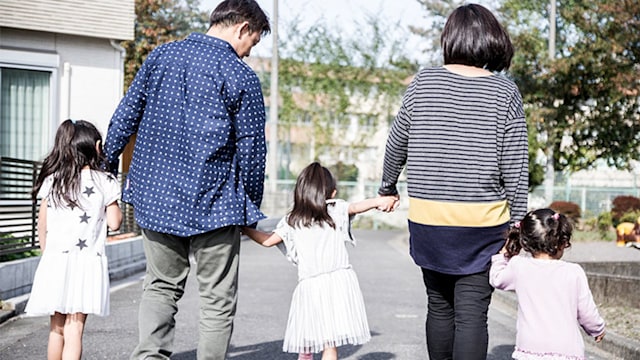New rules on Child Tax Credit come into force on Thursday, affecting the benefits received by thousands of parents across the UK. It is a measure announced by former Chancellor George Osborne two years ago that is estimated to affect some 515,000 families by 2020. Find out all about the changes being introduced by the government and how they may affect you...
STORY: How the 2017 Budget will affect mums
The Tax Credits two-child limit
Child Tax Credit is paid by the government to low income families to help parents with the costs of raising children. The amount of money parents are entitled to depends on various factors including income and other family circumstances, but can be worth up to £2,870 per child per year.
Child Tax Credits can be worth up to £2,870 per child per year
Previously there has been no limit on how many children a parent can claim for, but now credits will only be paid for the first two children in any family. If your children were born before the changes were enforced, you will still be entitled to credits for three or more children. However if you have a third child on or after 6 April 2017, they will not be entitled to extra money. The government is also removing the family element – a payment of £545 for a newborn first child.
Why are the cuts being introduced?
The government are aiming to find £1.2bn by 2020 with this cutback to child tax credits.
STORY: How to register for the government's new tax-free childcare scheme
Who will be affected?
The cuts will primarily affect lower-income families who receive Child Tax Credits and have more than two children, where the third or later children are born after 6 April 2017.
Families who welcome a third child after 6 April 2017 won't be entitled to child tax credits
Who is exempt?
- Families with three or more children born before 6 April 2017, if parents keep claiming without a long break
- Twins or triplets born to families who had one child
- Children looked after by a friend or family carer
- Children who have been adopted – except by step-parents
- Children born through rape
- Disabled children, who are counted separately
For more information and to find out what you are entitled to receive visit gov.uk/child-tax-credit.
